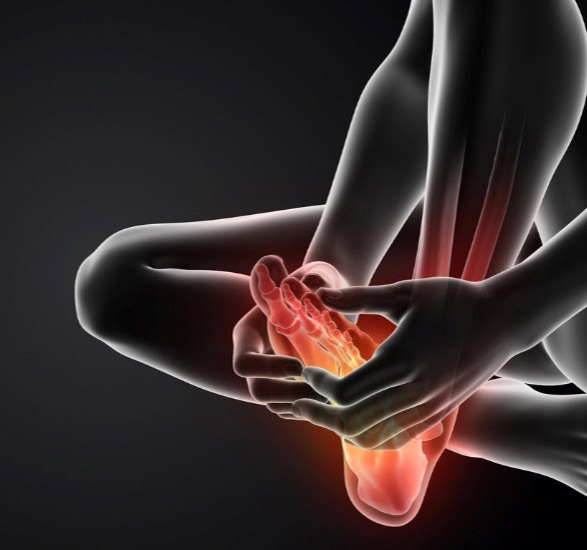
#health #nerves
FEET ON FIRE
Peripheral Neuropathy a result of damage to the nerves located outside of the brain and spinal cord (peripheral nerves), often causes weakness, numbness and pain, usually in the hands and feet. It can also affect other areas and body functions including digestion, urination and circulation.
Your peripheral nervous system sends information from your brain and spinal cord (central nervous system) to the rest of your body. The peripheral nerves also send sensory information to the central nervous system.
Peripheral neuropathy can result from traumatic injuries, infections, metabolic problems, inherited causes and exposure to toxins. One of the most common causes is diabetes.
People with peripheral neuropathy generally describe the pain as stabbing, burning or tingling. In many cases, symptoms improve, especially if caused by a treatable condition. Medications can reduce the pain of peripheral neuropathy.
Symptoms
Every nerve in your peripheral system has a specific function, so symptoms depend on the type of nerves affected. Nerves are classified into:
• Sensory nerves that receive sensation, such as temperature, pain, vibration or touch, from the skin
• Motor nerves that control muscle movement
• Autonomic nerves that control functions such as blood pressure, perspiration, heart rate, digestion and bladder function
Signs and symptoms of peripheral neuropathy might include:
• Gradual onset of numbness, prickling or tingling in your feet or hands, which can spread upward into your legs and arms
• Sharp, jabbing, throbbing or burning pain
• Extreme sensitivity to touch
• Pain during activities that shouldn't cause pain, such as pain in your feet when putting weight on them or when they're under a blanket
• Lack of coordination and falling
• Muscle weakness
• Feeling as if you're wearing gloves or socks when you're not
• Paralysis if motor nerves are affected
If autonomic nerves are affected, signs and symptoms might include:
• Heat intolerance
• Excessive sweating or not being able to sweat
• Bowel, bladder or digestive problems
• Drops in blood pressure, causing dizziness or lightheadedness
Peripheral neuropathy can affect one nerve (mononeuropathy), two or more nerves in different areas (multiple mononeuropathy), or many nerves (polyneuropathy). Carpal tunnel syndrome is an example of mononeuropathy. Most people with peripheral neuropathy have polyneuropathy.
There are no comments yet.